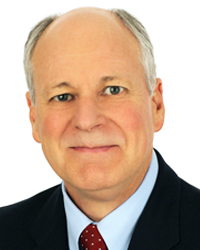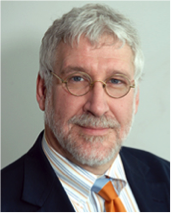![]() Download Newsletter in PDF format
Download Newsletter in PDF format
 Life is so complex these days that, I suspect, we have all come to believe in the inescapability of Murphy’s Law: if something can go wrong, it will.
Life is so complex these days that, I suspect, we have all come to believe in the inescapability of Murphy’s Law: if something can go wrong, it will.
So it’s worth noting when things go as planned, due to a productive mix of hard work, dedication, good will, and a great idea arising at the perfect time. Hence, the iConquerMS™ story.
Where do we see evidence of things going ‘right’?
- The iConquerMS™ initiative is patient-powered. Our Governing Board and Committees, largely comprised of people living with MS, are really deeply involved in both strategies and network activities. It’s visible in the robust discussions of research protocols within the Research Committee. And it’s visible in the plethora of suggestions for new techniques to recruit and engage patients in the Communications and Membership Committees.
- Social Media was always expected to be at the heart of this initiative. We see dozens of blogs about iConquerMS™ in the digital community, and when those blogs and tweets appear, registrations spike at the iConquerMS.org portal.
- Collaboration with other organizations was another core principle of iConquerMS™. We started with written ‘testimonials’ from other organizations, but that has now advanced so much farther, as major players such as the National Multiple Sclerosis Society write about iConquerMS™ at their websites, blog about it, distribute postcards about it at their in-person meetings, and so on.
- At the beginning of this new enterprise in U.S. healthcare research, PCORI (the Patient-Centered Outcomes Research Institute, the source of iConquerMS™ funding) spoke about a national network of Clinical Centers (known as Clinical Data Research Networks, or CDRNs) and Patient-Powered Research Networks (PPRNs) like iConquerMS™ that would be linked to explore important research topics. Not an easy thing to achieve – unprecedented, in fact – and yet our network is already in the process of forming a host of such connections with research groups as varied as the MOOD PPRN, which is focused on depression; the Department of Preventive Medicine & Public Health at the University of Kansas; and many more – research groups that we would likely have never interacted with, without the existence of this exciting national healthcare research initiative.
- The national dialogue around patient-centeredness seems to be an ideal place to speak of iConquerMS™. Yes, in coming weeks, iConquerMS™ presentations will be made at conferences such as BioIT World and Health DataPalooza, where thousands of attendees interested in the opportunities of Big Data in research gather each year. (see page 4 for details)
Can we therefore declare ‘victory’? Not quite, since it’s early days for iConquerMS™. We are still recruiting people with MS towards our goal of 20,000 participants, and we are still paving the research pathway.
But perhaps it is not too soon to say that Murphy’s Law, just this once, will not be inevitable.
Many thanks to every one of you who has already participated, shared information with friends, blogged, tweeted, offered ideas, commented on our activities, or in dozens of other ways helped to make your network an emerging success.
Sincerely,

Robert McBurney, Ph.D.
Principal Investigator, MS Patient-Powered Research Network (iConquerMS™)
President & CEO, Accelerated Cure Project for MS

 The Bridge
The Bridge
Dr. Ken Buetow, Arizona State University
Lisa Emrich, Chair, Communications Committee, iConquerMS™
“The Bridge” is a new iConquerMS™ e-newsletter feature that connects a patient volunteer with a researcher. This kind of dialogue is one of the many ways in which iConquerMS™ is connecting the patient and research communities.
Lisa: Why did you decide to get involved in iConquerMS™?
Ken: I have a long-standing interest in the shifting of gravity in biomedicine towards broader involvement in research by patients, as well as enhanced ‘ownership’ of the research process by patients as the recipients of care. I believe that it is critical to hear and consider the patients’ point of view in research. iConquerMS™ is a model that exemplifies that shift.
In addition, I am very enthusiastic about the Patient-Centered Outcomes Research Institute (PCORI) as a holistic whole in research, encompassing large-scale provider organizations with a diverse collection of patient groups. The kind of synergy that could be achieved in a national infrastructure such as this can really address issues of importance to patients.
Lisa: I understand you are pioneering a new data science initiative at Arizona State University. What does that have to do with iConquerMS™?
Ken: Arizona State University, through its Complex Adaptive Systems initiative, brings the full continuum of Information Technology and informatics to iConquerMS™. Specifically, we have:
- The capacity for 21st century data collection and web-based tools for patient communities to participate in research, through usage of a web-based portal and a standards-based common data model;
- A large-scale data science platform that we call the Next Generation Computational Capability, that has the ability to integrate and analyze Big Data; and
- A multi-disciplinary staff team that is facile with all types of data – genomics, clinical, imaging, etc. – to seek insights.
Lisa: What is meant by Big Data, especially in the context of multiple sclerosis research?
Ken: The term Big Data is used by various people to mean different things. IBM suggests that Big Data is defined by four characteristics – volume (very large quantities), variety (different forms), velocity (has dimensions of time), and veracity (has variable reliability). John Myles White, a Data Scientist at Facebook, describes Big Data as any “quantity of data that’s so large that traditional approaches to data analysis are doomed to failure.”
Big Data in biomedicine refers to large quantities of diverse types of data – clinical care encounters, demographic, geographic, individual clinical experiences, lifestyle, personal preferences, and molecular characterizations - from tens of thousands of individuals. What is driving interest in Big Data in medicine are the opportunities that open up to us when it has been harnessed. Large volumes of data have embedded novel insights that are not apparent through the examination of smaller quantities of data. With Big Data, one has the possibility of discerning patterns and associations that would be undetectable with traditional approaches.
Lisa: So what kind of insights are you looking for?
Ken: The true goal is to figure out the personalized medicine paradigm in multiple sclerosis: that is, who should get what intervention, when, and under what circumstances. I believe that the information we need is locked inside the data resources, and when you collect it, integrate it, and analyze it, you will gain those insights. I’m reminded of the Michaelangelo quote that “every block of stone has a statue inside it, and it is the task of the sculptor to discover it.” One might say all Big Data contains insights and it’s the job of the data scientist to find them!
Lisa: Does that mean that as iConquerMS™ grows, there won’t be any more need for clinical trials?
Ken: No, I believe that Randomized Clinical Trials (RCTs) will remain the ‘platinum standard’ for generating evidence in biomedicine for the foreseeable future. But, it is simply not possible to conduct an RCT for every possible question and every possible personalized combination of interventions. So Big Data fills an important evidence gap. More importantly, Big Data analytics can also be used to “mine” large data collections for non-obvious relationships – that is, to discover unexpected, or previously unidentified, relationships. Computers can be harnessed to be tireless interrogators of data. And then RCTs can be used selectively to verify findings of critical importance.
Lisa: Do you envision opportunities to make iConquerMS™ a global research endeavor?
Ken: Yes, I do! As a technologist who has watched developments over the past 30+ years in network-based connectivity, I see time and space barriers disappearing. PCORI itself could certainly catalyze a worldwide activity, since its network is scalable. Of course, there will be considerations around local laws, language and culture, but those should be addressable since the technical capacity is available to us. iConquerMS™ is already reaching to research communities in Asia and elsewhere to assess interest in such coordinated research activities.
Lisa: Are your original expectations of iConquerMS™ being met?
Ken: I’m very optimistic and hugely enthusiastic about this project. As more and more data are collected, I see countless research opportunities emerging.
Lisa Emrich is a patient advocate who has been helping patients educate and empower themselves since 2008. She uses her experience with MS and RA to educate patients and encourage them to take an active role in their own healthcare. Lisa blogs at Brass and Ivory: Life with MS and RA and writes for HealthCentral.com, MultipleSclerosis.net, and RheumatoidArthritis.net. She serves on the board of the nonprofit MS Soft Serve, as well as advisory panels for the National Multiple Sclerosis Society and Rheumatoid Patient Foundation. She is the Chair of the iConquerMS™ Communications Committee.
Ken Buetow, Ph.D., is the Director of Computational Science and Informatics at Complex Adaptive Systems at Arizona State University. He has more than 30 years of experience in computational approaches to connect, share, and interpret biomedical data. He formerly led the National Cancer Institute’s efforts to build an international, interoperable infrastructure for exchanging cancer data. He also serves as an advisor to the iConquerMS™ Research Committee.
What’s New in iConquerMS™
Compare your data to all data in the iConquerMS™ network!
Registered participants in iConquerMS.org can soon view snapshots of the combined network data, and see how their responses compare to others. Log onto your account or Join Now.
iConquerMS™ is in the spotlight!
April 21, 2015, BioIT World, Boston. Workshop entitled “How Patient-Driven Data Networks are Transforming Biomedical Research”
April 23, 2015, BioIT World, Boston. Panel entitled “iConquerMS™ and the Future of Research”
June 2, 2015, Health DataPalooza conference, Washington, DC. Panel entitled “iConquerMS™: Kicking Butt and Taking No Names in the Fight Against Disease”